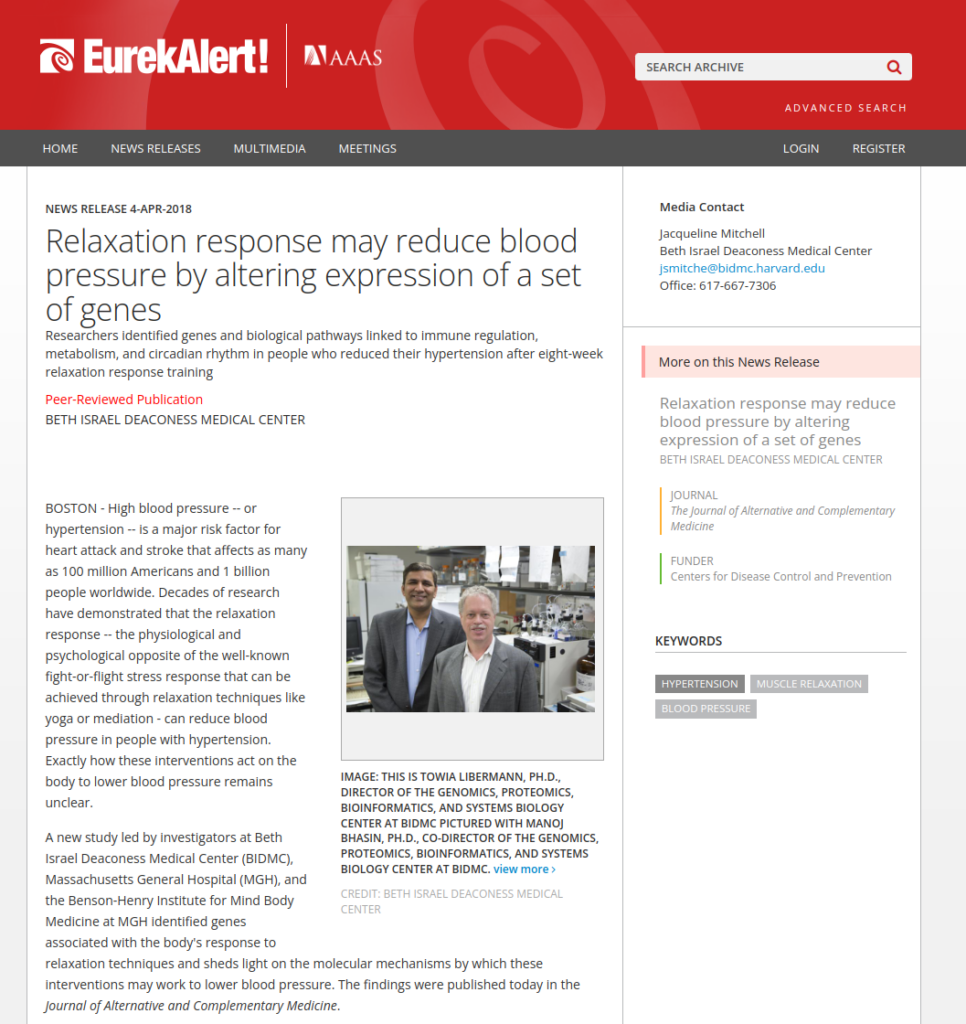Publication
AAAS Eureka Alert
Abstract
Researchers identified genes and biological pathways linked to immune regulation, metabolism, and circadian rhythm in people who reduced their hypertension after eight-week relaxation response training
Web and Email Links
Related Listings
Journal
Headache - The Journal and Head and Face Pain
Supported, in part, by grants from the United States Public Health Service (HL 14486-01, HL 10539-06, and RR-76 front the General Clinical Research Centers Program of the Division of Research Resources), the General Service Foundation, the Headache Research Foundation, and the Sandoz Foundation, Inc.
Journal
Headache, the Journal of Head and Face Pain
PHYSIOLOGIC CHANGES consistent with the decreased sympathetic nervous system activity are present during the practice of a relaxation technique, Transcendental Meditation. The changes consist of decreased oxygen consumption, carbon dioxide elimination, respiratory rate and minute ventilation. Arterial blood lactate decreases markedly. Arterial blood pH and base excess decrease slightly. There are no changes in arterial blood pressure, in respiratory quotient, nor in rectal temperature […]
Journal
Science
Sympathetic nervous system activity was assessed in experimental and control subjects who were exposed to graded orthostatic and isometric stress during monthly hospital visits. After the first session, the experimental subjects practiced a technique that elicited the relaxation response. Their concentrations of plasma norepinephrine during subsequent graded stresses were significantly higher. No such changes were noted in the control group. These results were then replicated in the c […]

